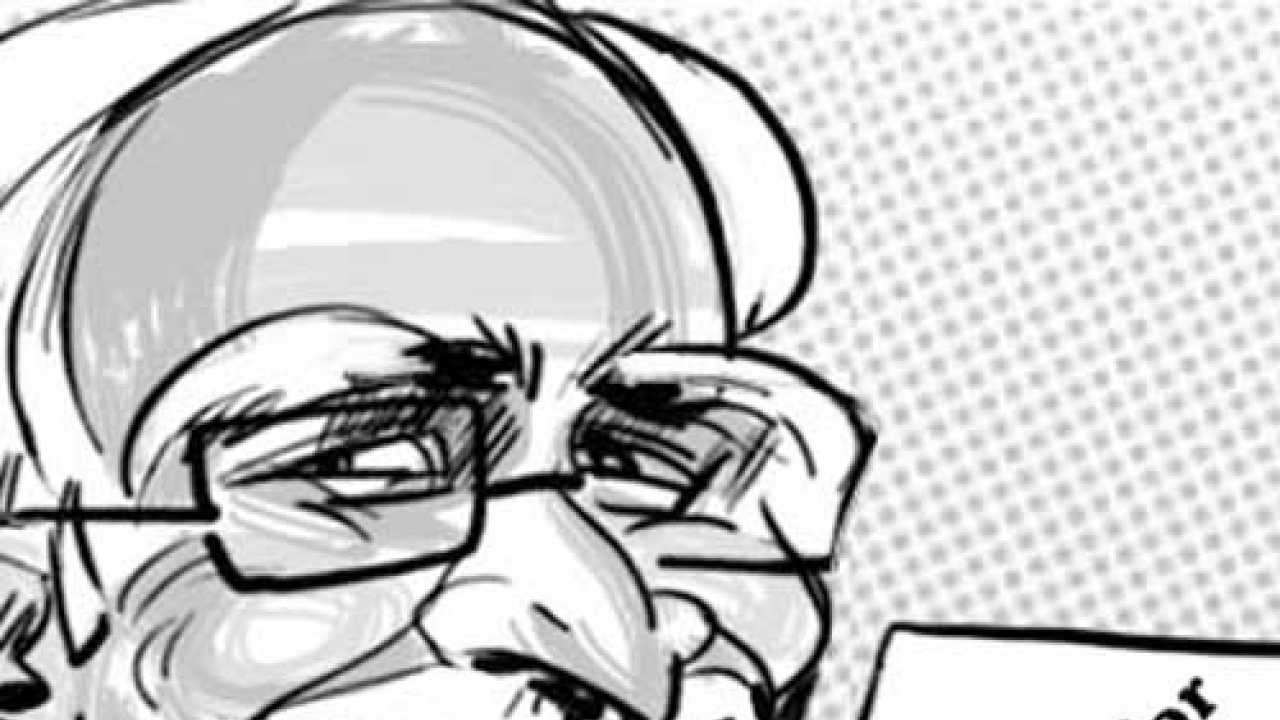
It is foolish to expect our parliamentarians to be acquainted with the radical philosophy of anarchism. Controversial yes, but anarchism — many would argue — is not a philosophy to be dismissed easily. Over the decades, anarchism has evolved into exhilarating, if sometimes reckless, political thought. Equally reviled by Marxists and Rightists, the philosophy has existed on the margins; though many a revolutionary has succumbed to its irresistible charms.
Undoubtedly “anarchism” is not a word to be bandied about loosely, and least of all, defined by the mindless unruliness of the theatrics played out in parliament these days. A tool of resistance, anarchism runs deep in society, its proponents advocating stateless societies based on non-hierarchical free associations. Anti-statism is at the heart of the anarchist philosophy as is resistance to authority even in the conduct of human relations.
So what’s the present Rajya Sabha row all about? Exasperated with the shouting MPs, Rajya Sabha chairperson Hamid Ansari recently hit them where it seems to hurt most: “Every single day, rules and etiquettes are being violated. If we want the House to become a federation of anarchists, then it is a different matter.” It can be unequivocally said that stalling discussions with nothing but petty brinkmanship as its motivation, is not what anarchism is about.
However, judging from the bullish objections of the Upper House members at being tagged as ‘anarchists’, it seems most of them are conflating that term with ordinary lawlessness (the kind they are actually guilty of), without its philosophical underpinnings.
If Ansari’s remark was intended at preventing ‘anarchism’ in the house, it only stoked some more ‘anarchy’. The din continued, the MPs now demanding that the term ‘anarchists’ be expunged from the house records. No doubt, Ansari has done the original anarchists a great disservice by clubbing his unruly flock with them.
Surely anarchists deserve better than that. Eminent anthropologist and political theorist James C Scott in his latest book Two Cheers for an Anarchism writes: “Acts of disobedience are of interest to us when they are exemplary, and especially when, as examples they set off a chain reaction, prompting others to emulate them.” Scott further adds, “Then we are in the presence less of an act of cowardice and conscience — perhaps both — than of a social phenomenon that can have massive political effects.”
Every act of wanton unruliness, therefore, does not correspond to a transformative act of anarchy. Our careless use of the term — pinning the label “anarchist” on all and sundry violators of law (propelled by the arrogance of their power rather than any motivation for radical change) directly contradicts Scott’s thesis.
Consider some of the spontaneous movements dubbed as ‘anarchic’, which have shifted the course of history. When the Anna Hazare-led anti-corruption movement hit the streets of the National Capital, political pundits predicted the onset of anarchy. As they intoned when protesters were water cannoned and thrashed at the barricades of India Gate following the December 16 gang-rape. Arvind Kejriwal and his followers are frequently dismissed as anarchists seeking to subvert the parliamentary system. Were any of these movements anarchic? Even if so, does that in any way diminish their worth?
James Scott argues that the 1960s civil disobedience movement, creating a massive disruption in public order, achieved what years of peaceful organising and lobbying couldn’t. Prone to institutionalising spontaneous movements, politicians may perceive anarchy in such restlessness. But, as Scott argues, anarchism “involves a defense of politics, conflict, and debate, and the perpetual uncertainty and learning they entail.”
Anarchic or not, moments of public unrest have refashioned history time and again, more than our MPs’ silly, cavalier disruptions. Our MPs perhaps need to imbibe a bit of that spirit of anarchism to move out of their present rut.
The author is National Editor, Edit Page, dna.